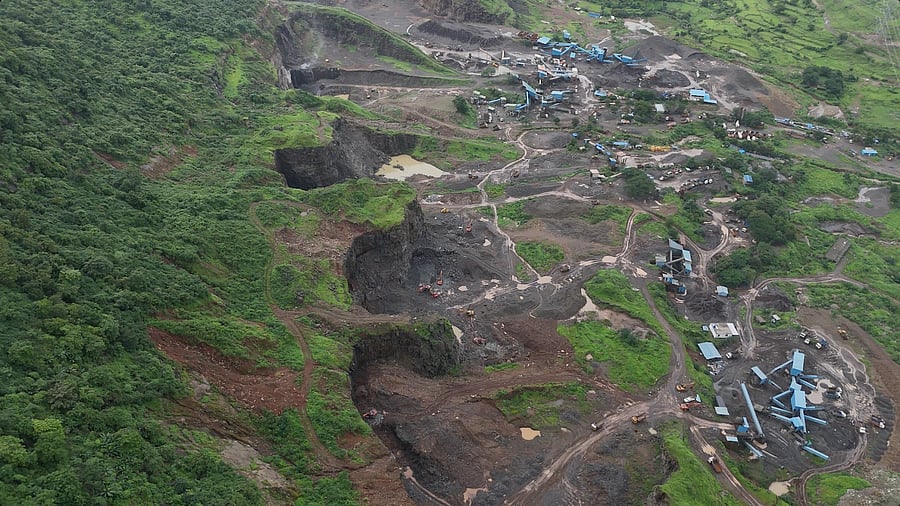
Cancer patients breathing stone dust: Greens’ SOS to PM
Navi Mumbai: Alarmed by the fact that stone dust is infiltrating the air at Tata Cancer Hospital at Kharghar in Navi Mumbai from a neighbouring stone quarry, green groups have escalated the “distressing situation” to Prime Minister’s level through a social media drive and called for stopping the mining activity immediately.
Since the Raigad district administration has already admitted that the quarry has not been given permissions, NatConnect Foundation has sought information from the Collector on the action taken.
The hospital, Advanced Centre for Treatment, Research & Education in Cancer (ACTREC), is a beacon of hope for countless patients from all over India who come seeking life-saving treatment. Stone dust from the nearby quarries has begun to infiltrate the very air these patients breathe, posing an additional threat to their already fragile health, online petitions addressed to the PM said.
In two different petitions, NatConnect Foundation and Protect Navi Mumbai Environment platform have pointed out that the continuous exposure to stone dust can aggravate respiratory issues, complicate existing health conditions, and, in worst case scenarios, can lead to severe lung diseases.
Cancer patients, who are already dealing with weakened immune systems, are at a greater risk of facing these health complications which can drastically affect their recovery process.
The quarrying activity behind the Tata Cancer Hospital creates an unsafe environment that directly impacts the health and well-being of those who are already vulnerable and fighting for their lives, Surya Jayant Hudar of Protect Navi Mumbai Environment group said.
Equipment designed to function in contaminant-free environments is also under constant risk due to airborne particulate infiltration, NatConnect Foundation director Kumar said.
In fact, the ACTREC director Dr Pankaj Chaturvedi has already raised the issue with the Chief Minister Devendra Fadnavis and pointed out that exposure to dust particles can increase the risk of lung infections among the cancer patients whose immunity levels are very low.
Cancer patients deserve an environment that supports their recovery, not one that endangers their health further, Kumar said.
Protecting the health and lives of our cancer patients, preserving biodiversity, and maintaining the integrity of eco-sensitive zones must be a collective priority, Dr Chaturvedi, an accomplished life-threatening cancer specialist, said.
Dr Chaturvedi informed the CM, buildings within the hospital campus-constructed nearly 25 years ago are now showing structural damage, such as cracked beams and slabs resulting in weakening of the constructed buildings in the ACTREC Campus.
“This has led to rainwater seepage, fostering fungal growth in cleanroom facilities and creating further hazards for patients,” he pointed out.
He also expressed “deep concern” over the escalating noise and dust pollution caused by unregulated stone quarrying adjacent to the ACTREC.